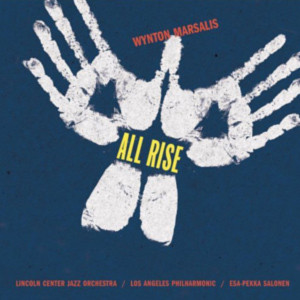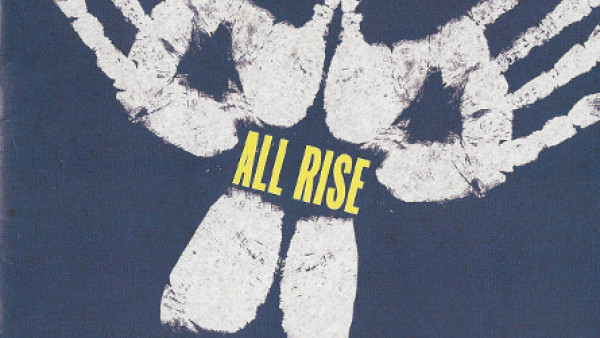Wynton Marsalis “All Rise” Son ...
The ambition of Wynton Marsalis’s epic composition, “All Rise,” can be measured by the sheer number and variety of the people gathered to perform it. The two-CD set involves the Lincoln Center Jazz Orchestra, the Los Angeles Philharmonic and three separate choral groups: the Paul Smith Singers, the Northridge Singers and Baltimore’s Morgan State University Choir. And the composer successfully integrates these jazz, classical and gospel performers for 106 minutes of music divided into a dozen distinct but linked movements. For this is not a bunch of jazz tunes stitched together and dressed up with strings, as some of Marsalis’s earlier extended works were; this is convincingly through-composed art music.
The liner notes suggest that the 12 movements, following the structure of a 12-bar blues, trace the cycle of life from childhood innocence through the youthful yin-yang of sin and repentance to the mature reconciliation with God and mankind. But the music is never that literal and one can safely ignore the program notes (and Stanley Crouch’s typically overheated essay) and appreciate “All Rise” for its sumptuous harmonies and dizzying rhythms. Marsalis doesn’t have the gift of a Mozart, Monk or McCartney for indelible melody, but he does have a genius for expanding the blues to grand proportions without losing its sassiness, humor and lust.
It’s no surprise that Marsalis writes brilliantly for the jazz big band, and “All Rise” contains such splendid examples as the jazz funeral movement, “Cried, Shouted, Then Sang,” and the rollicking railroad movement, “Expressbrown Local.” What is surprising is the new authority of his string charts, especially in the jittery modernism of the opening “Jubal Step” movement and the “Wild Strumming of Fiddle” movement. His choral writing is still underwhelming, and several lulls in the long piece offer more repetition than development. But there are also thrilling passages, as in “A Hundred and a Hundred, A Hundred and Twelve,” where flighty strings and growling horns circle each other warily until they finally find a common rhythm and go dancing off into the sunset.
“All Rise” doesn’t ascend to the level of the modernist masterpieces by Igor Stravinsky, Duke Ellington, Aaron Copland and John Adams, but it is very good work, comparable to George Gershwin’s uneven forays into classical music. Marsalis will no doubt get the opportunity to mature as an art-music composer, one that Gershwin never had.
by Geoffrey Himes
Source: The Washington Post



